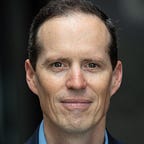The future of philosophy and social technology
Tokyo Forum 2022, an important conference about the relationship between philosophy and science, took place last month (December, 2022), with scholars from several continents.
There is much to ponder from the various sessions, any of which could generate a lengthy reflection, but I’ll focus on one comment by Markus Gabriel of the University of Bonn. He called for a “New Enlightenment” characterized by a cooperation between philosophy and science. One necessary dimension of this cooperation, he said, had to do with the way that societies conceive of the conditions for our common flourishing.
Human biology tells us that we are pro-social animals who flourish best under conditions of high-level cooperation, (which) helps us overcome geopolitical tensions and fights between identities.
I appreciate his point here, highlighting the challenge to develop social systems which reflect an appreciation for our human need for connection and cooperation.
Of course the immediate next question is what kind of high-level cooperation will help us rise to address existing tensions among people. How might we develop a “social technology” with the kind of sophistication we see in our other forms of technology?
In our book, we describe an image for conceiving of this social technology: a pool filter. Rather than cleaning this or that molecule of water and then sending it back into a filthy pool (an image for the many one-off social interventions that fail to rise to real social change), a filter does two things very well. First, it properly cleans a molecule of water; second, it reproduces that action millions of times per second so that in due course an entire pool is clean.
Our social technology must similarly do two things: understand what elicits positive change in the individual person, and then reproduce that kind of change millions of times in a way that cleans the entire pool of a society and a world.
We describe how that basic model is now unfolding through Community Renewal International’s model. First, it locates personal change in the commitment of caring — that which is rooted in our fundamental biological drive toward prosocial behavior. Second, it captures the genius of the village as a system of caring that can be reproduced in ever-higher manifolds such that effective large-scale social change can unfold.
It is a theory. But more importantly, it is happening now. We invite you to learn more. We are persuaded that it addresses the challenge that Prof. Gabriel has offered for the future of philosophy and its relationship to science. For such a social technology must develop differently in local contexts, calling for a cooperative effort among people not only as neighbors, but also as specialists in their various skills and disciplines which, like the parts of an organism, must work together for the flourishing of the whole. Our fragile planet, our common home, as well as our 8 billion family members depend on it.
